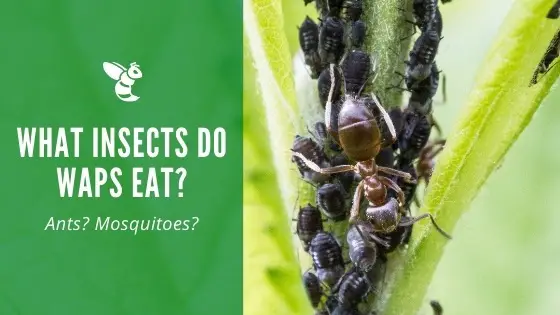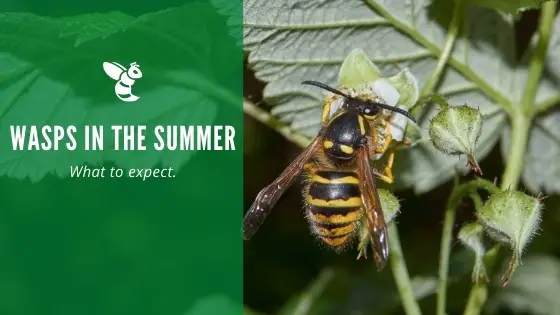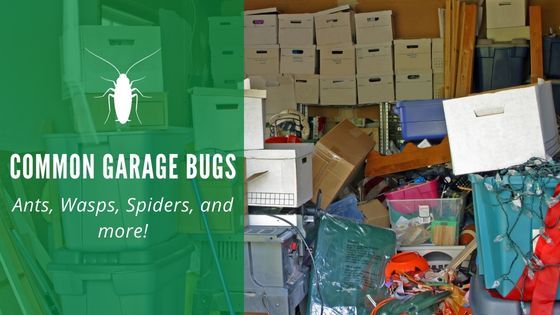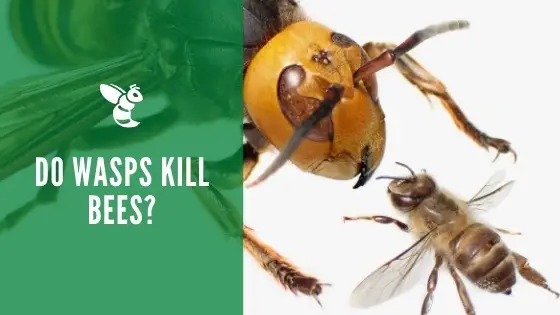What Insects do Wasps Eat?

Wasps have some of the same characteristics as bees, but they are very much their own organism. With different appearances, living preferences, and food sources, many different types of wasps may be in your area. With a typical diet of nectar and insects, wasps thrive in the late spring and summer months.
Some of the most common varieties include the mud dauber, paper wasp, and yellow jacket. In the world, there are more than 20,000 different species of wasps. Here is a brief guide on the types of insects that wasps will typically eat and insects that they will avoid.
A Typical Wasp Diet
The most commonly consumed meal by wasps in the U.S. includes the nectar from local flowers and honeydew, Spiders, aphids, caterpillars, flies, bees, and various insect larvae are also a favorite meal. The hunting strategies used by different species of wasps will vary. Stalking their prey is often used to find their next meal.
You may notice a wasp hanging around under a leaf or in the grass. You might think that they’re injured or dead, but they may be trying to stay incognito so they can make their move. Once a wasp finds an insect that they’re interested in pursuing and stalks it, it will go ahead and begin the process of capturing the insect.
Do Wasps Eat Ants?
Ants are sometimes a meal for wasps. It’s relatively easy for a wasp to capture several ants in a short period. Because ants are generally slow and can be found on sidewalks, driveways, or patios, you won’t see a wasp turn down this easy meal. Wasps that hang out below the ground’s surface in their nest can often find ants to eat and feed to their larvae.
Do Wasps Eat Mosquitoes?
Wasps will sometimes capture mosquitoes, but they are not a typical meal due to their low protein amount. If you see a wasp attempting to eat a mosquito, they have likely mistaken it for another insect.
You’ve probably noticed that most mosquitoes come out during the nighttime hours. Wasps will sometimes come out in the late evening hours to catch a meal since this is a pretty common time of day for many insects to present themselves. Wasps have additional compound eyes (ocelli) that help them find insects in the dark.
How Often Do Wasps Eat Insects?
Wasps are a lot more active when the temperature outside is warmer, and this is true for a lot of the bugs that wasps eat. As humans, we eat more when we’re more active, and this is true for wasps.
The winter months bring about hibernation for wasps. During the winter months, wasps often die off, except for the colony’s queen or larger wasps. There aren’t many insects that you’ll find moving around in the winter, making it difficult for wasps to feed. Larvae eat more often than adult wasps. The larvae are growing and require a good deal of protein to thrive.
What Predators are Interested in Wasps?
It’s important to remember that wasps are also part of the food chain. Some other insects and creatures will happily make a meal out of a wasp or wasp colony, and they require these meals as a way of surviving, just as wasps do. Most of these other animals can tolerate the sting of a wasp, making it easier for them to attack without being harmed.
Birds, mice, weasels, lizards, and dragonflies all feed off wasps when provided the opportunity. As wasps help control the insect population, the wasp population must also be controlled.
While there are both social and solitary wasps (more wasps are solitary), the type of meals they consume are similar. What’s most interesting is that the food that adult wasps eat tends to differ from what they feed their larvae. The larvae of solitary wasps like mud daubers need a much higher amount of protein each day, often obtained by eating spiders.
You can find wasps in rural areas, suburbs, cities, and agricultural areas. For the most part, they’ll assist with keeping the insect population down on your property, and they are also excellent at pollinating plants. If they start to annoy you or become threatening, there are methods that you can use to remove them or repel them. Generally speaking, the creatures on your property should help control one another without you having to step in, in most cases.




